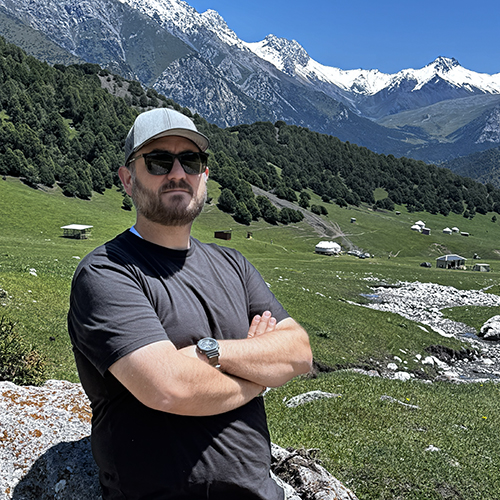Although they have retired from the UW, professors emeriti Robert Paine and Charles Johnson continue to gain recognition for their work, including recent regional and international honors.
Robert Paine, professor emeritus of biology, has been awarded this year's International Cosmos Prize from the Expo '90 Foundation, which carries a cash award of 40 million yen, or about $408,000. Past recipients have included well-known conservationists from David Attenborough to Pulitzer Prize-winning biologist E.O. Wilson. UW Professor Emerita Estella Leopold received the award in 2010; the UW is the only institution to have had two winners in the prize's 21 years.

Paine is known for his pioneering work on keystone species—any species whose loss can reverberate throughout the food web in an ecosystem. The concept is taken for granted today, but before Paine's experimentation in the 1960s, scientists believed that each species had equal bearing on the functioning of a habitat. In experiments at Makah Bay on the Washington coast, Paine showed that when the common starfish Pisaster ochraceus was removed from a natural intertidal shore, its preferred prey—mussels—freely proliferated and pushed out other organisms such as algae and snails. This cascade effect, first observed by Paine, helped explain the importance of other keystone species such as killer whales, wolves, sea otters, and lions in maintaining species richness in various ecosystems.
"Although Dr. Paine's work on the starfish was conducted nearly half a century ago, its significance is still highly valued today," commented the Cosmos Prize judges. "This is not simply a matter of cooperation and collaboration; eat-or-be-eaten struggles and competition also play essential parts. Dr. Paine has clarified these facts using very explicit approaches, providing important guidance for considering present-day biodiversity."
Charles Johnson, professor emeritus of English, has been selected to receive the 2013 Humanities Washington Award, recognizing his longtime support for the humanities in Washington state.

The award will be presented at Humanities Washington's Bedtime Stories literary gala on October 4, 2013, an annual event that Johnson helped establish in 1999. Writers from around the Northwest, inspired by an annual theme, develop original short works for the gala and present them live at the event. Johnson has penned a story for the gala each year; one led to his book Dr. King's Refrigerator.
"It's very humbling," Johnson says of this latest career honor. "I was just looking over the past recipients of [the Humanities Washington Award], and they're very, very distinguished and diverse people … who've all made very selfless contributions to the humanities, to culture, to literacy." Past winners have included Rep. Norm Dicks, the Northwest Museum of Arts and Culture, and celebrity librarian Nancy Pearl.
Johnson received the National Book Award in 1990 for his novel Middle Passage. Among his numerous works are four novels, three collections of short stories, and more than 20 screenplays.
More Stories

AI in the Classroom? For Faculty, It's Complicated
Three College of Arts & Sciences professors discuss the impact of AI on their teaching and on student learning. The consensus? It’s complicated.

A Love of Classics and Ballroom
Michael Seguin studied Classics at the UW and now owns Baltimore's Mobtown Ballroom. The two interests, he says, are more connected than they might seem.

Through Soil Science, an Adventure in Kyrgyzstan
Chemistry PhD alum Jonathan Cox spent most of 2025 in Kyrgyzstan, helping farmers improve their soil—and their crops—through soil testing.